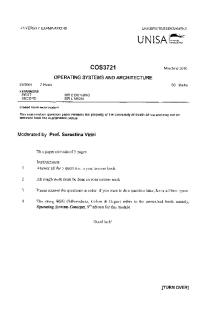Jurisprudence Exam June 2016, questions PDF

| Title | Jurisprudence Exam June 2016, questions |
|---|---|
| Course | Law |
| Institution | The Chancellor, Masters, and Scholars of the University of Cambridge |
| Pages | 2 |
| File Size | 118.7 KB |
| File Type | |
| Total Downloads | 50 |
| Total Views | 135 |
Summary
University of Cambridge Law Tripos exam paper....
Description
LAW TRIPOS Part IB LAW TRIPOS Part II EXAMINATION IN LAW FOR EUROPEAN STUDENTS
Monday 30 May 2016
9 to 12
Paper 47 JURISPRUDENCE Answer three questions. You may use your own copy of any monolingual or bilingual dictionary (except electronic dictionaries and specialised legal dictionaries).
STATIONERY REQUIREMENTS 20 Page Answer Book x 1 Rough Work Book x 1 Tags
There will be 10 minutes’ reading time before the start of this examination. You are not permitted to write, whether in the answer book, on rough paper, or otherwise, during this period. You may not start to read the questions printed on the subsequent pages of this question paper until instructed that you may do so by the Invigilator.
2 1 ‘Whereas justice is an abstract standard by reference to which we evaluate social institutions, law is itself a social institution, open to empirical study. For that reason the nature of justice is a philosophical problem but the nature of law is not.’ Discuss.
2
Explain and evaluate the significance of Hart’s idea of the rule of recognition.
3 Explain Fuller’s idea of formal or procedural legality. Was he entitled to claim that it amounted to an internal morality of law?
4 Do Hart and Dworkin really disagree, or are they pursuing wholly different projects? 5 How helpful is Dworkin’s comparison of law and literature? Can judges usefully be compared to the joint authors of a chain novel?
6 Does law have a distinct purpose, or is it instead an instrument that serves many diverse purposes?
7 ‘Natural law theories show us the need for positive law. Legal positivism is a theory about the character of positive law. So there is no real conflict between natural law and legal positivism.’ Discuss. 8 Can a theory of justice and right be independent of conflicting views regarding human flourishing?
9 Why does Rawls emphasise that his theory is a theory of justice for the ‘basic structure’? Is the idea of the basic structure helpful?
10 ‘In the absence of positive law, the requirements of natural law would be too lacking in determinacy to guide conduct. Nozick overlooks this point, assuming that our natural right of self-ownership will itself entail a detailed body of property rights.’ Discuss.
END OF PAPER...
Similar Free PDFs

Exam June 2016, questions
- 7 Pages

Exam 15 June 2016, questions
- 31 Pages

Exam 30 June 2016, questions
- 5 Pages

Exam June 2015, questions
- 5 Pages

Exam June, questions
- 3 Pages

Exam June 2011, questions
- 10 Pages

Exam June 2015, Questions
- 3 Pages

Exam June 2019, questions
- 12 Pages

Exam June 2017, questions
- 3 Pages

Exam June 2018, questions
- 6 Pages
Popular Institutions
- Tinajero National High School - Annex
- Politeknik Caltex Riau
- Yokohama City University
- SGT University
- University of Al-Qadisiyah
- Divine Word College of Vigan
- Techniek College Rotterdam
- Universidade de Santiago
- Universiti Teknologi MARA Cawangan Johor Kampus Pasir Gudang
- Poltekkes Kemenkes Yogyakarta
- Baguio City National High School
- Colegio san marcos
- preparatoria uno
- Centro de Bachillerato Tecnológico Industrial y de Servicios No. 107
- Dalian Maritime University
- Quang Trung Secondary School
- Colegio Tecnológico en Informática
- Corporación Regional de Educación Superior
- Grupo CEDVA
- Dar Al Uloom University
- Centro de Estudios Preuniversitarios de la Universidad Nacional de Ingeniería
- 上智大学
- Aakash International School, Nuna Majara
- San Felipe Neri Catholic School
- Kang Chiao International School - New Taipei City
- Misamis Occidental National High School
- Institución Educativa Escuela Normal Juan Ladrilleros
- Kolehiyo ng Pantukan
- Batanes State College
- Instituto Continental
- Sekolah Menengah Kejuruan Kesehatan Kaltara (Tarakan)
- Colegio de La Inmaculada Concepcion - Cebu





